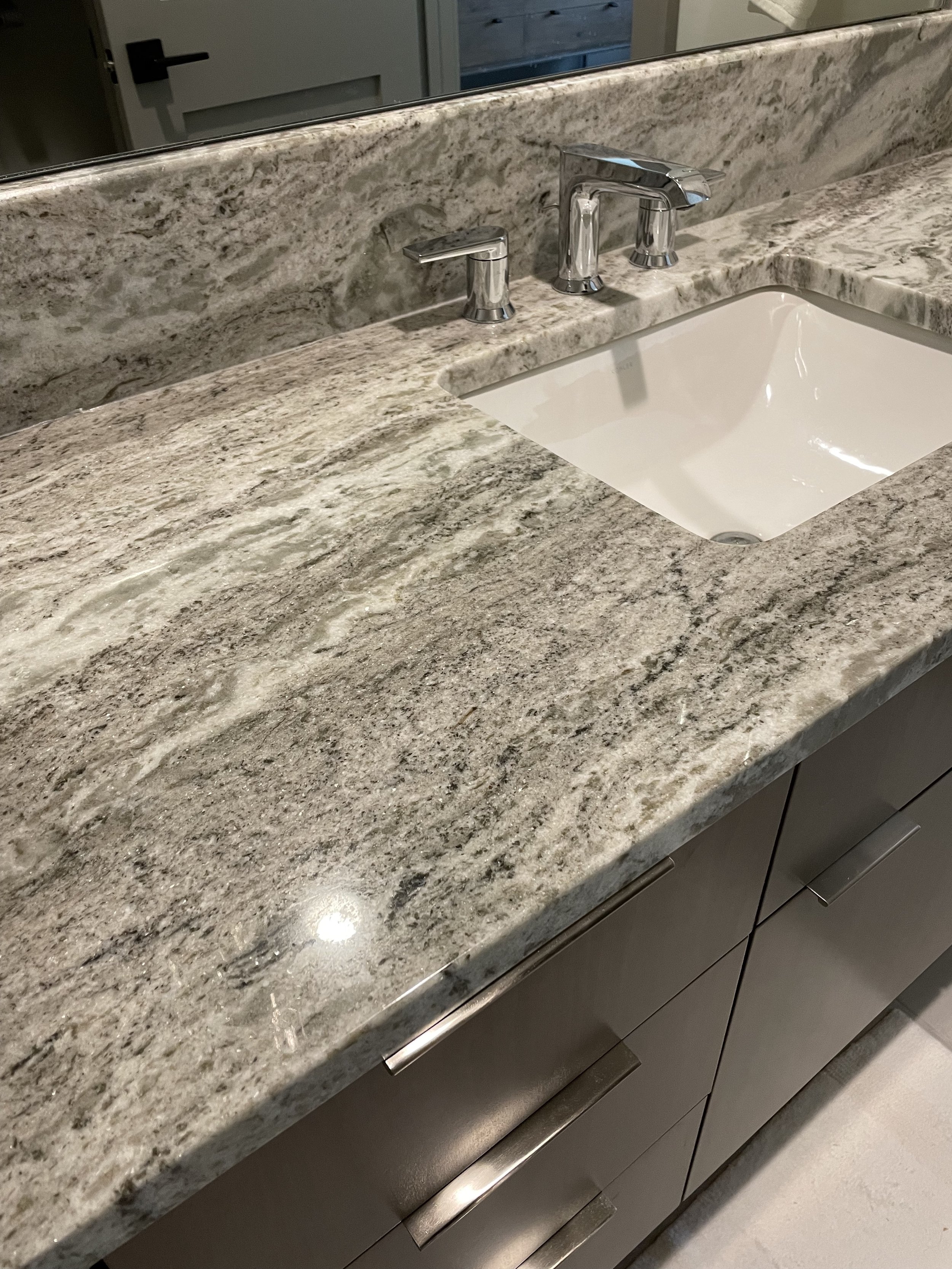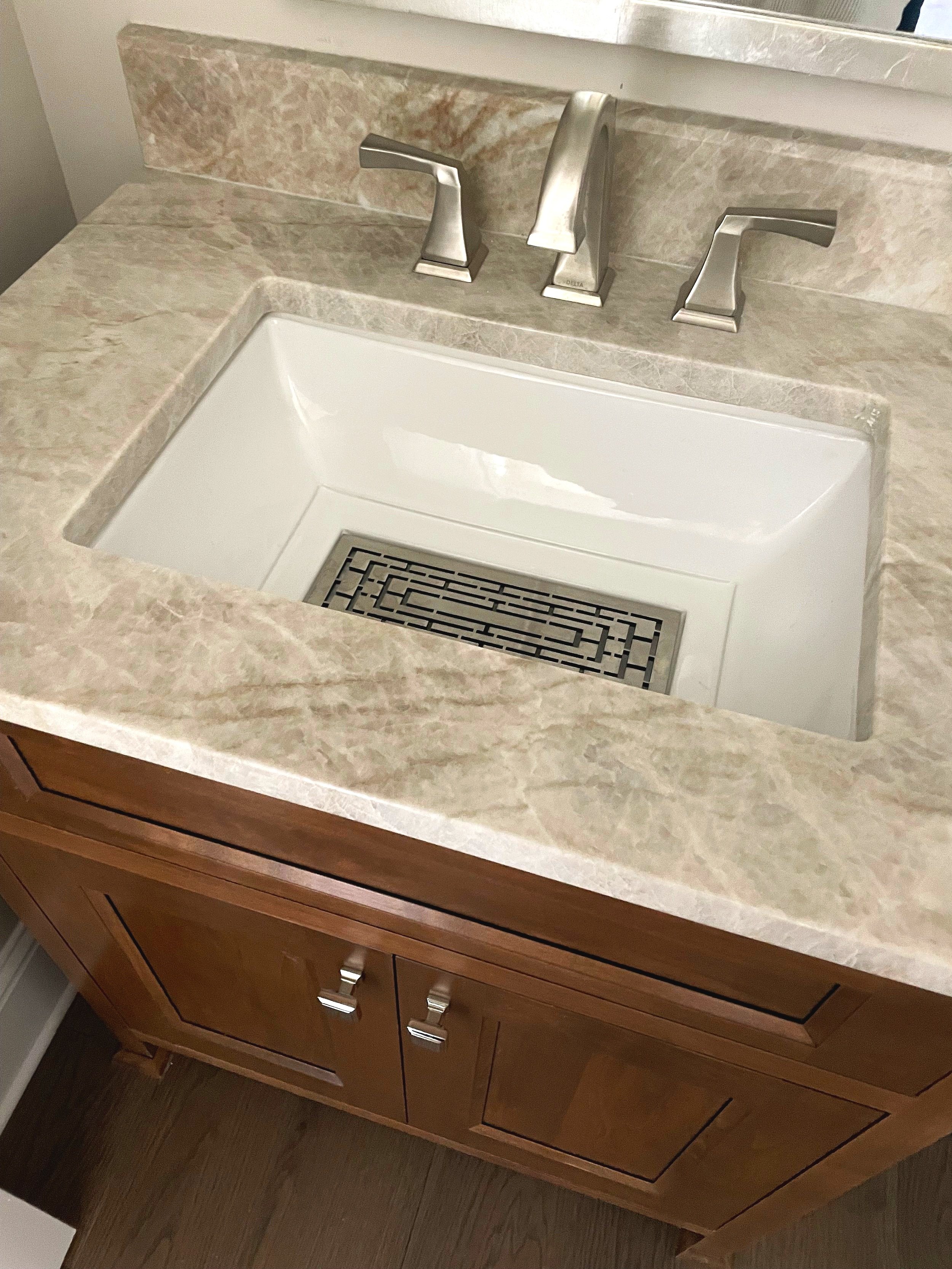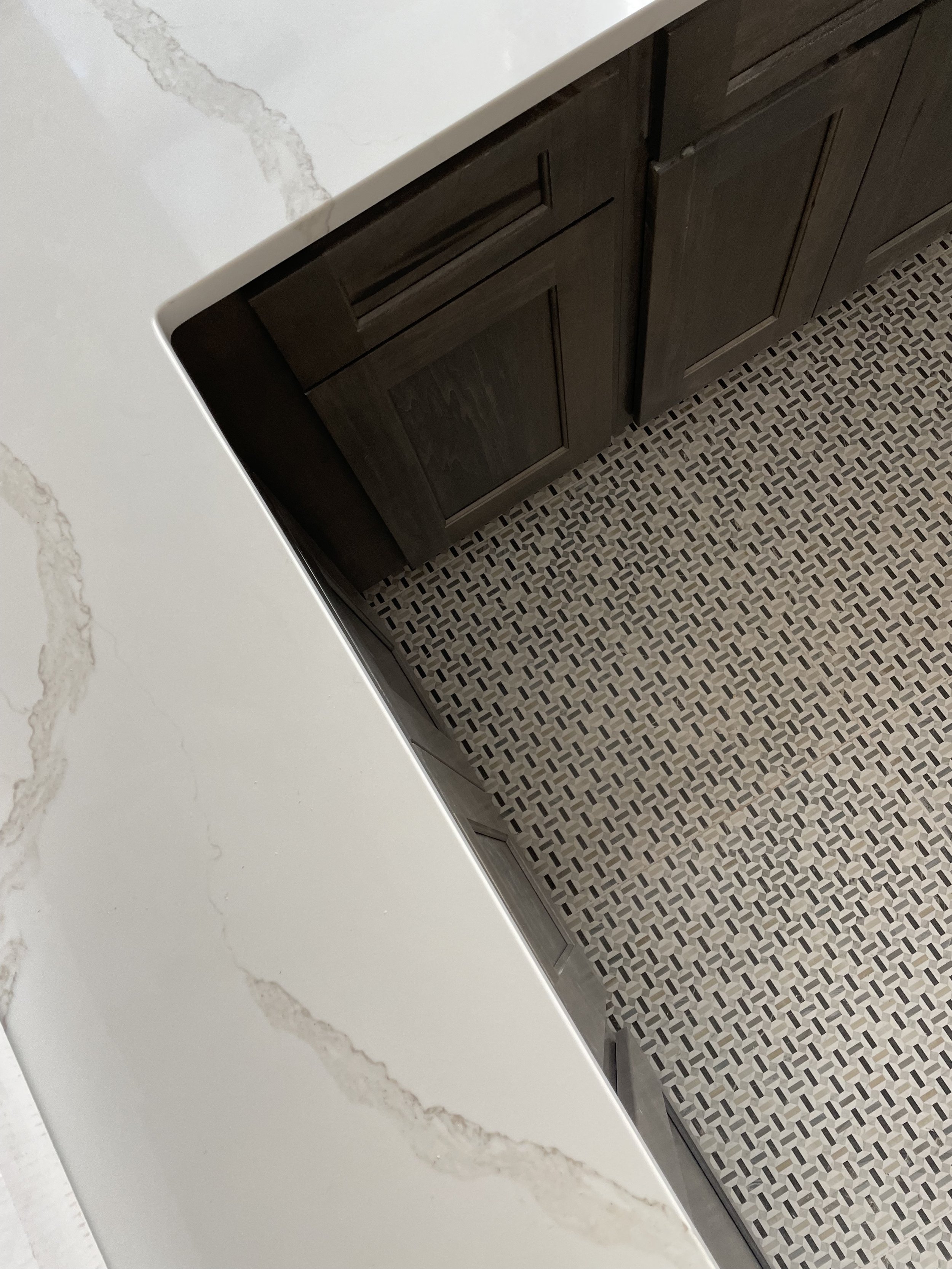Our Most Frequently Asked Questions about Countertops: Granite, Marble, Quartzite & Quartz
This week we made a trip to our slab yard to choose counter surfaces for a new construction home in Reynolds at Lake Oconee. During this phase of the new build process, we find the same questions arise time and again... Will it stain? How do I clean it? Will this break the budget?! Well we’ve aggregated those frequently asked questions for the countertop materials that we use most, and provided expert answers on the subject! We hope this guide to granite, marble, quartzite and quartz surfaces helps you make a rock solid decision for what material is best for your space.
GRANITE
-
Granite is a natural stone that consists mainly of quartz, mica, and feldspar minerals.
-
Granite gets a bad reputation for being outdated, but there are some beautiful, modern varieties available. Granite can be found in a myriad of grey, white, brown, and black tones with unique veining and patterns suitable for any style home.
-
Granite is a hard stone that is scratch resistant, however, it can be prone to chipping. It must be resealed periodically to be heat and stain resistant.
-
It is recommended to clean granite with dish soap on a day-to-day basis and avoid acidic or citrus cleaners.
-
Typically every year or two. Some granites are more porous than others, requiring more frequent sealing.
-
On average, granite countertops range from $45 - $100 per square foot.
RBID’s TOP GRANITE PICKS
Absolute Black - Honed & Leathered | Black Pearl | Silver Cloud | River White
MARBLE
-
Marble is a natural stone that is formed when limestone undergoes extreme heat and pressure.
-
Marble can be found in a variety of natural tones like black, brown, grey, and white, with veining that will vary greatly from slab to slab.
-
Marble is a softer natural stone making it more prone to scratches, nicks and cracks. Similar to granite, marble is heat resistant, but can have discoloring with extreme temps. Sealing the marble provides some protections, but it can absorb stains from fruits, wines, etc. and become etched from acidic foods. Some consider these natural changes to be imperfections, while others (like us!) consider it a beautiful patina.
-
For daily care, use dish soap that is pH balanced and a microfiber towel to ensure all water is picked up from the counter surface. Natural stone-specific cleaners can also be used. Acidic and citrus cleaners should be avoided.
-
It is recommended to reseal marble at least once a year.
-
On average, marble countertops range from $40 to $100 per square foot.
RBID’s TOP MARBLE PICKS
Calcutta Gold | Carrara White | Fantasy Brown | Super White
QUARTZITE
-
Quartzite is a natural stone that forms when sandstone undergoes extreme pressure and heat.
-
There is a great deal of variability in the patterning and coloring of quartzite. You can expect each piece to be unique. Quartzite slabs have similarities to marble in its veining and coloring.
-
Quartzite is an extremely hard stone that is more durable than granite, quartz, and marble. It is highly scratch resistant and stain resistant when sealed. Due to its porous nature, it will be more susceptible to stains if not properly cleaned and sealed. It does not contain any resin so it is resistant to heat and fire.
-
You can clean quartzite with dish soap that is pH balanced or natural stone-specific cleaners.
-
It is recommended that you seal quartzite once to twice a year.
-
On average, quartzite countertops range from $65 to over $200 per square foot.
RBID’s TOP QUARTZITE PICKS
Fantasy Macabus | Taj Mahal
QUARTZ
-
Quartz is an engineered stone containing a small percentage of natural quartz, polyester, styrene, and other materials. So while it is comprised of some natural materials, it is not a natural stone. The process of manufacturing quartz consists of blending pulverized natural stone aggregates with a mix of polymers, removing the air which is then heated and shaped to form slabs.
-
Since quartz is a man-made material, it can be produced in a wide array of colors and styles and is most often produced to resemble natural stone surfaces. Quartz will, however, lack the uniqueness and randomness of a natural stone.
-
Quartz is highly scratch resistant and stain resistant. It is a nonporous surface that does not require sealing. However, due to the resin in quartz, an extremely hot pan can cause color distortion.
-
For daily cleaning, use dish soap and warm water with a microfiber cloth. Acidic or harsh chemical cleaners should be avoided.
-
Quartz is sealed upon installation and does not require resealing.
-
On average, quartz countertops range from $30 to $150 per square foot. The price will vary depending on the amount of resin used in the quartz. The less resin used produces a higher quality quartz.
RBID’s TOP QUARTZ PICKS
Brunello | Ferro Gray | White Sands
Are you taking notes?! There’s so much to keep in mind when selecting the right countertop material for your space! That’s why we made a handy, one-page fact sheet that you can reference on the fly. Drop your email below and we’ll send it to your inbox right away!













